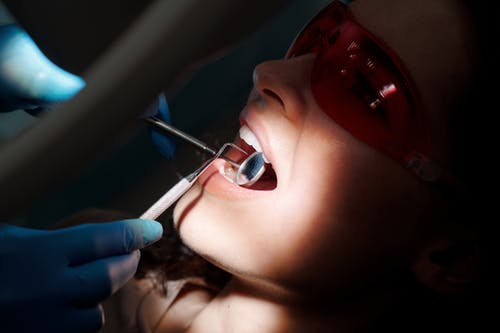Sleep apnea is a prevalent sleep disorder that affects millions of people worldwide. It causes breathing interruptions throughout the night, leading to disturbed sleep and potentially serious health complications if left untreated. This comprehensive guide will discuss the available treatments for sleep apnea and how a reliable dentist can help you overcome this condition. By understanding the various treatment options and working with a qualified dental professional, you can regain control of your sleep and live a healthier, more rested life.
The Role of a Dentist in Sleep Apnea Diagnosis and Treatment
Historically, sleep apnea has been associated with medical specialists like sleep physicians and pulmonologists. However, dentists have increasingly become vital members of sleep apnea treatment teams. They play a crucial role in early diagnosis, as they often notice oral health signs that could indicate sleep apnea. When they identify these signs in their patients, dentists can recommend a sleep study, a crucial step in obtaining an accurate diagnosis.
How Dentists Recognize Sleep Apnea Symptoms
Dentists often spot sleep apnea symptoms during routine dental examinations. Signs that may indicate sleep apnea include teeth grinding (bruxism), tooth wear, a small jaw, and a scalloped tongue. By being aware of these symptoms, dentists can ensure that patients who exhibit them are referred for further assessment and treatment.
Traditional Sleep Apnea Treatment: CPAP Machine
Continuous Positive Airway Pressure (CPAP) machines have been the gold standard for treating sleep apnea for many years. These devices deliver a steady stream of pressurized air through a mask, keeping the airway open and preventing interruptions in breathing. While effective, CPAP therapy often has compliance issues due to discomfort, noise, and clunkiness.
Oral Appliance Therapy for Sleep Apnea
An increasingly popular alternative to CPAP treatment is oral appliance therapy. Custom-made by a dentist, oral appliances resemble mouthguards or retainers and work by repositioning the jaw to prevent airway obstruction. These devices are less invasive and more comfortable than CPAP therapy, making them an appealing option for patients with mild to moderate sleep apnea.
Sleep Apnea Treatment Options
If you suspect you have sleep apnea, it is crucial to discuss your symptoms with a dental professional. They will help you determine the best course of action, which may include a sleep study or making lifestyle changes. For those diagnosed with sleep apnea, your dentist can create a custom oral appliance to help alleviate your symptoms. To take the first step towards a more restful night’s sleep, make an appointment with a qualified dental professional.
Finding a Reliable Dentist in Monmouth County
It’s essential to work with a Monmouth County dentist who has experience in diagnosing and treating sleep apnea. They will be able to assess your symptoms, recommend appropriate treatments, and provide the necessary follow-ups to ensure your sleep apnea is well-managed. A reliable dentist will also work closely with other healthcare professionals to create a holistic treatment plan tailored to your specific needs.
Sleep Apnea and Teeth Grinding (Bruxism)
Teeth grinding is often linked to sleep apnea. The grinding action, also known as bruxism, is believed to be an unconscious response to the body’s need to regain normal breathing during sleep. Custom-made night guards can be an effective solution for teeth grinding, protecting the teeth and reducing the symptoms of sleep apnea.
Identifying Sleep Apnea Through Oral Health Signs
Regular dental check-ups are essential for detecting sleep apnea symptoms early on, allowing for prompt treatment initiation. Dentists will look out for signs such as worn tooth surfaces, a small jaw, or a scalloped tongue during routine examinations. If any of these signs are present, the dentist will likely recommend further assessment to determine if sleep apnea is the underlying cause.
Sleep Study for Sleep Apnea Diagnosis
A sleep study, or polysomnography, is a diagnostic tool to confirm sleep apnea. Conducted in a sleep lab or at home, this test records vital information such as brain activity, eye movement, heart rate, and blood oxygen levels during sleep. The results of the sleep study enable healthcare professionals to provide an accurate diagnosis and recommend the best treatment options.
Impact of Sleep Apnea on Overall Health
Untreated sleep apnea can lead to a host of health problems, including hypertension, heart disease, diabetes, and obesity. As a result, it is vital to receive appropriate treatment to prevent complications and improve overall health. With proper treatment, those living with sleep apnea can enjoy a better quality of life and protect their long-term well-being.
Conclusion
In conclusion, sleep apnea is a serious sleep disorder that requires prompt diagnosis and effective treatment. Dentists play a crucial role in identifying sleep apnea symptoms and helping patients find the best course of treatment. By addressing sleep apnea and working closely with a reliable Monmouth County dentist, you can regain control of your sleeping patterns, improve your overall health, and enjoy a better quality of life. Don’t let sleep apnea stand in the way of your well-being; discuss your symptoms with a qualified dental professional today.
